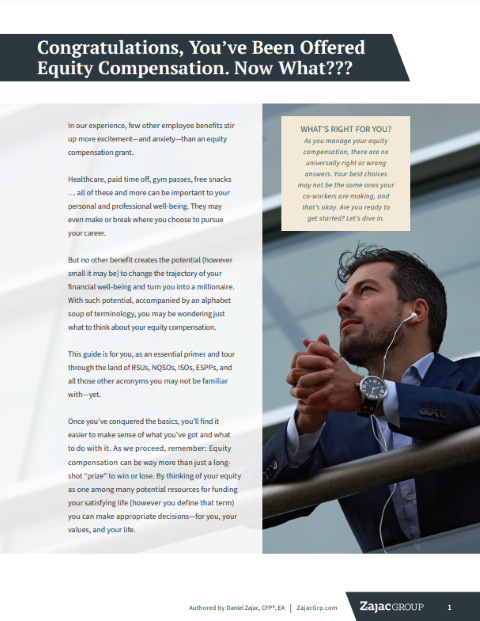Open windows are periods when executives, employees, and other inside shareholders are free to sell their company stock (subject to the broader rules restricting insider trading). In other words, such shareholders are not within a blackout or lockup period.
Category: O
Ordinary income
Broadly speaking, there are two main ranges of rates at which you pay personal income taxes (not including separate AMT calculations). Capital gains are taxed under one set of rates. Most other income is taxed as ordinary income. This includes your salary, bonuses, prize winnings, most retirement account withdrawals, etc. Under current tax rates and based on your total annual income, you typically end up paying a blended ordinary income tax rate between 10%–37%. Your ordinary income tax rate is usually higher than your long-term capital gains rate, which is why, given a choice, incurring capital gains is often preferred to generating ordinary income.
Offering Period
Up to 27 months long for a qualified ESPP, the duration of time an employee can participate in a ESPP. A single offering period may include more than one purchase period, and offering periods can overlap.
Dive Deeper
Whether you’re just getting started or expanding your knowledge, here are some resources to get you started.
NEW! The Ultimate Guide to Equity Compensation

Understand what you have, what you should consider, and what ultimately matters to you.
Hi, I'm Daniel Zajac, CFP®, EA

I write about equity compensation and employee stock options in a way that is easy to understand.
NEW! The Ultimate Guide to Equity Compensation
Understand what you have, what you should consider, and what ultimately matters to you.
FREE DOWNLOAD
Get the Ultimate Guide to Incentive Stock Options to better understand your equity compensation.


